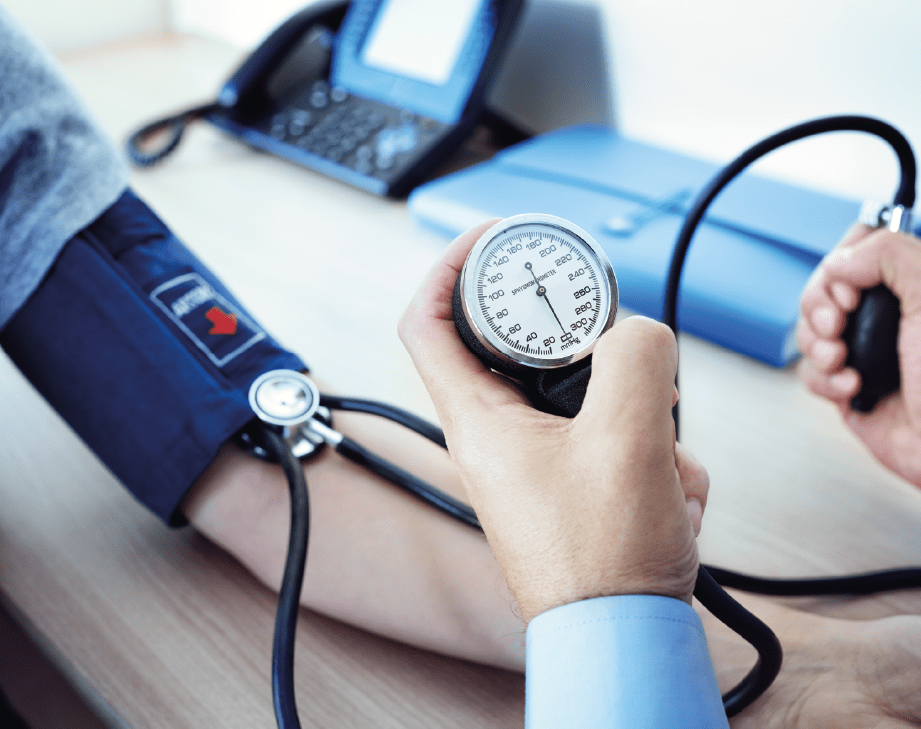

COVID-19 and high-risk conditions – high blood pressure (hypertension)
Our Chief Medical Officer, Dr Mark Simpson, talks through the high-risk condition, hypertension - and the actions that can be taken to reduce the risks associated with it and COVID-19.
In the UK, high blood pressure affects approximately 15 million people – more than one-in-four adults. Figures show that 31% of men and 26% of women are diagnosed with the condition.
In terms of outcomes for those who catch COVID-19, the main risk seems to be in those with poorly managed high blood pressure - and these people are also at greater risk of developing complications of the infection.
So, my number one recommendation is to have your blood pressure checked to see whether you suffer from high blood pressure.
There were early concerns that certain classes of blood pressure medication may make individuals more susceptible to COVID-19, but these have now been completely disproved - to the extent that these medications may even have a protective effect.
For those of you on medication, there are two key steps to take:
- Be absolutely compliant with your medication – it is easy to forget this especially if you have to take medication more than once a day but is really essential. Do make sure you order any repeat prescriptions well in advance to avoid any pharmacy supply problems and remember to take your medication with you if you are going away for a few days.
- Monitoring and Follow Up – you need to ensure that the medication is proving effective for you and that any side effects are reported to your doctor. Home blood pressure machines are relatively cheap and effective and will help avoid trips to your doctor’s surgery. Your doctor will also probably recommend an annual blood test to look at mineral balance and kidney function so do make sure you have these.
There are also a number of lifestyle actions you can take that will help enormously - not only with just your blood pressure, but also your general health and well-being.
You probably already know these, but here they are as a reminder:
- Choose heart-healthy foods. Try to focus on fruits, vegetables, whole grains, poultry, fish and low-fat dairy foods. At least for most of the week.
- Decrease the salt in your diet. Aim to limit sodium to less than 2,300 milligrams (mg) a day or less. However, a lower sodium intake — 1,500 mg a day or less — is ideal for most adults.
- Lose weight. Losing even a little weight can reduce your blood pressure.
- Stay active. Regular exercise lowers blood pressure and helps with stress and weight loss.
- Manage stress. When you're stressed, you may cope in unhealthy ways that can raise your blood pressure. Try managing stress in healthy ways, such as deep breathing and meditation.
- Avoid or limit alcohol. Alcohol can raise blood pressure. Even in these difficult times, moderation can be a good thing.
- Stop smoking or at least significantly reduce your consumption. Tobacco not only constricts blood vessels pushing up your blood pressure, but also causes plaque to build up in your arteries.
If you would like to find out how we can help your organisation and people manage and recover through COVID-19, contact us and one of our experts will be in touch.



